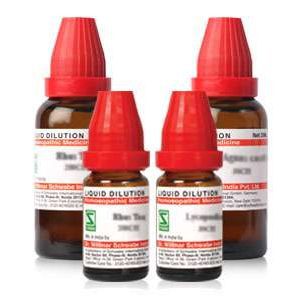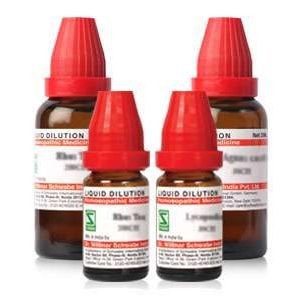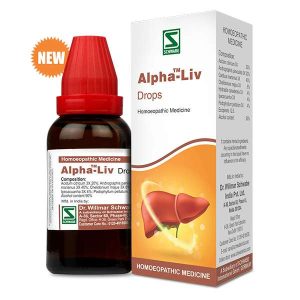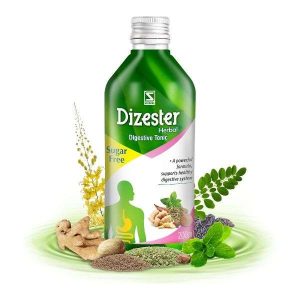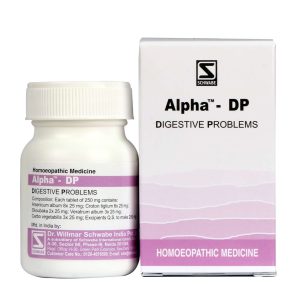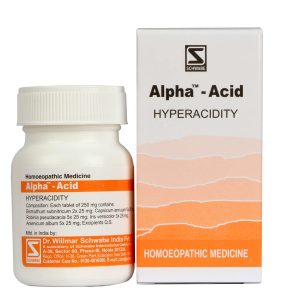
What is Dyspepsia & How to cure it?
- Dr. P T Ponmani
- August 4, 2022
- No Comments

Dyspepsia or indigestion
Indigestion, or dyspepsia, describes an upset stomach. Indigestion is not a disease but a symptom of an underlying gastrointestinal disorder, such as GERD, ulcers, liver or gallbladder disease, etc. Whenever there is a problem with digestion and related organs, people commonly refer to it as indigestion/dyspepsia. Sometimes there might not be any structural abnormality detected when tested. Such a condition is called functional dyspepsia.
Dyspepsia may clinically present in various forms or symptoms such as heartburns, acidity, frequent eructations, etc, but indigestion is itself an expression of underlying medical problems connected to the gastrointestinal system. Everyone has experienced indigestion once in a while or often. Dyspepsia is often mild, and usually manageable with simple dietary and lifestyle changes. Sometimes it may be an expression of other serious medical conditions such as gastroesophageal reflux disease (GERD), ulcers, liver and gallbladder disease, pancreatic disease, etc.
How is dyspepsia/indigestion diagnosed?
A diagnosis is made based on the signs and symptoms of the person, medical history and food habits and bowel habits, etc. Other diagnostic tests may include:
- A complete blood test
- Liver function test
- Thyroid assay
- Breathe test, to check for H pylori.
- Imaging studies such as X-ray, CT scan, or upper endoscopy to check for any structural abnormalities.
- Stool test to detect H. pylori or other bacterial infections.
Causes of dyspepsia/indigestion
Indigestion is usually caused by:
- Drinking too much alcohol or caffeine.
- Eating too much or too fast.
- Eating fatty, spicy, or acidic foods.
- Experiencing stress or anxiety.
- Taking certain medications, such as pain killers, steroids, antibiotics, oral contraceptives, aspirin, etc
- Taking alcohol and smoking
- Obesity
- Stress
- Lack of physical activity
- Pregnancy
- Indigestion is not caused by excess stomach acid.
Also Read Indigestion: Improving your digestion with help of Dizester Herbal
Dyspepsia/Indigestion could be a sign of:
- Gastritis
- Gastroesophageal reflux disease (GERD)
- Gastroparesis
- Helicobacter pylori infection
- Hiatal hernia
- Irritable bowel syndrome (IBS)
- Peptic ulcer disease
- Stomach infections
- Chronic pancreatitis
- Thyroid disease
Symptoms of indigestion/dyspepsia
Symptoms of dyspepsia such as upper abdominal discomfort, chest pain or epigastric pain, shortness of breath, etc, might mimic the symptoms caused by a heart attack. It is always better to rule out any heart condition as a precautionary measure. If the symptoms are severe and unusual with cold sweating, chest pain with the pain radiating to the jaw, neck, or arm, then it calls for immediate medical attention.
- Sour acidic taste in your mouth
- Burning pain in the stomach
- Pain in the chest
- Loss of appetite
- Fullness of abdomen
- Gurgling sound in the stomach
- Nausea and vomiting
- Abdominal pain or discomfort
- Abdominal bloating
- Early satiety
- Abdominal distention
- The symptoms get worse from eating.
- Frequent eructations and heartburn
Prevention and management of dyspepsia
Most of the time indigestion can be relieved by making dietary changes or taking simple medication. Indigestion might go away as soon as you change your diet and habits. But sometimes it might start affecting the quality of life. It is always better to take precautions when the symptoms are mild. Some of the preventive measures are:
- Avoiding alcohol and smoking
- Avoiding too much caffeine and tea
- Eating a healthy, balanced diet
- Managing the stress level
- Reducing painkillers
- Drinking lots of water
- Limiting the intake of caffeine and alcohol
- Eating slowly
- Avoiding foods or drinks that trigger indigestion
- Avoiding carbonated drinks
- Avoiding fatty, spicy, or acidic foods from the diet
Warning signs that need immediate medical attention
Indigestion or dyspepsia usually goes away in a few days with or without medication by changing the diet and managing the food and bowel habits. Sometimes the symptoms may be persistent or they might keep worsening. Then it needs to be immediately taken care of medically. Some of such symptoms and signs are:
- Black stools
- Chest pain
- Difficulty in breathing
- Bloody vomiting
- Jaundice
- Unexplained weight loss
- Severe stomach pain
- Changes in bowel movements
- Frequent vomiting
- Difficulty in swallowing food
- Excessive sweating
Complications
Dyspepsia is not a serious health condition. It is one of the frequent and common health problems everyone has gone through in their life despite their age and sex. But severe and persistent indigestion can cause certain complications when left untreated.
- Esophageal stricture: continuous exposure to stomach acid can cause scarring in the upper gastrointestinal tract. This leads to narrowing and constriction of the esophagus.
- Pyloric stenosis: constriction and narrowing of the pylorus part of the stomach due to irritation of the mucous membrane from stomach acids.
- Peritonitis: an inflammation of the stomach wall due to damage and irritation of the lining of the stomach.
Risk factors for dyspepsia
It affects people of all ages and all the sexes and is one of the most common problems. Some of the few risk factors are
- Excessive alcohol consumption
- Taking painkillers and steroids for a long duration
- People with other gastric disorders
- Stress, anxiety, or depression
- Chain-smoking
- Eating too many junk foods
- Unhealthy and irregular eating habits, etc
Treatment for dyspepsia
The treatment usually depends on the diagnosis of the underlying condition causing the problems because indigestion itself is a symptom rather than a disease.
How to prevent dyspepsia?
- The best way to prevent indigestion is to avoid the triggers, be it food, drinks, or stress that causes the symptoms. Identifying the triggers and avoiding them is the best solution for preventing dyspepsia.
- Eating slowly and in small quantities can prevent symptoms such as bloating, heartburn, and heaviness of the abdomen.
- Avoiding acidic, spicy, and salty foods that contain high amounts of acids, such as salted snacks, citrus fruits, rich, fatty, and fried foods, etc
- Reduce the intake of tea and caffeine.
- Avoid exercising or walking with a full stomach. It is recommended to exercise at least an hour after eating food.
- Try to sleep in with a head high position.
- Go to bed at least three hours after eating dinner.
- Practice relaxation techniques like yoga, meditation, and breathing exercises to manage stress.
Homeopathic remedies to treat dyspepsia
- Carbo vegetabilis: it is used in cases of excessive bloating with frequent belching. It is indicated for indigestion from excessive drinking, fatty foods, salted fish, and meats. Bloating of abdomen relieved by eructation.
- Natrum carbonicum: it is indicated for indigestion problems from milk or dairy products. Excessive flatulence and diarrhea with an empty feeling in the stomach.
- Arsenicum album: it is indicated for indigestion from food poisonings such as eating spoiled food, eating cold fruits, ice cream, ice water, sour beer, bad sausage, alcoholic drink, and strong cheese. Nausea, vomiting and diarrhea with scanty, offensive stools followed by marked prostration. The thirst is frequent but for little quantity of water at a time. The symptoms are worse from the smell and sight of food. Burning pain in the stomach and esophagus relieved by warm drinks and sitting up.
- Bryonia: it is indicated for the heaviness of the abdomen with acid reflux and a bitter taste in the mouth. Nausea and vomiting worse from motion. Dryness of mouth with increased thirst.
- Natrum phosphoricum: it is indicated for complaints after eating dairy products and sweets. There is a sour taste in the mouth with a burning sensation in the stomach. Nausea with sour vomiting, and a yellow coating on the tongue.
- Phosphorus: Burning pain in the stomach better from eating cold foods. Thirst for cold drinks, but vomits once the liquid gets warm in the stomach.
- Lycopodium Clavatum: it is indicated for indigestion with a fullness of the abdomen after eating very little food. The stomach feels full and there is a distention of the abdomen.
- Nux Vomica: it is indicated for indigestion after eating rich spicy food, alcohol, caffeinated drinks, prolonged use of painkillers. and antibiotics. For heartburn after taking coffee, spicy food, or alcoholic drinks and it helps to relieve heaviness with a sensation of weight in the stomach after eating. Constipation with ineffectual urging for stool.
- Podophyllum: it is indicated for diarrhea with vomiting and nausea. Diarrhea is offensive, profuse, and painless and is expelled with a gushing force. Excessive gurgling felt in the abdomen with flatus before passing the stool.
- Pulsatilla: it is indicated for indigestion from eating pork or rich foods. It is one of the thirstless remedies. Distension of abdomen with bloating and headache. It helps to relieve abdominal discomfort caused by eating too much fatty food, cakes, and ice cream, with bloating, belching, and slow digestion.
- Antimonium crudum: it is indicated for indigestion from eating too much especially acidic fruits and fatty foods. Symptoms are relieved by applying heat to the abdomen. Deranged digestion with thick white-coated tongue and headache.
- Robinia: it is indicated for digestive disorders with heartburn, eructations and burning in the throat, and sour vomiting. Heartburn and vomiting worse at the night on lying down. It is accompanied by marked nausea. A constant sensation of weight and fullness in the stomach
- Ipecac: it is indicated for indigestion with persistent nausea and a clean tongue. Vomiting of watery fluid and white mucus. Weakness and fainting from frequent nausea and vomiting. There is an excessive accumulation of saliva along with empty belching. Distressing and cutting pain in the stomach.
- Iris versicolor: it is used in cases of indigestion with a marked burning in the stomach. The burning may extend to the food pipe and the throat. Nausea and sour vomiting after taking food.
- Asafoetida: it is indicated for indigestion with abdominal distension and loud belching. Excessive flatulence in the abdomen with distension and pain. Aversion to all kinds of food. The gas tends to pass upwards as loud and frequent belching. Sour, offensive eructations with a gurgling sound in the stomach. Pressing or cutting pains in the stomach with heat and pulsation in the pit of the stomach.
-
 Dr Willmar Schwabe India Nux vomica CHSale Product on sale
Dr Willmar Schwabe India Nux vomica CHSale Product on sale₹105.00₹86.10 -
 Dr Willmar Schwabe India Carbo vegetabilis CHSale Product on sale
Dr Willmar Schwabe India Carbo vegetabilis CHSale Product on sale₹105.00₹86.10 -
 Dr Willmar Schwabe India Asafoetida CHSale Product on sale
Dr Willmar Schwabe India Asafoetida CHSale Product on sale₹105.00₹86.10 -
 Dr Willmar Schwabe India Antimonium crudum CHSale Product on sale
Dr Willmar Schwabe India Antimonium crudum CHSale Product on sale₹105.00₹86.10
Some of the best homeopathic medicinal products from Dr. Wilmer Schwabe India are Alpha-Acid, Alpha-DP, Alpha-Liv. Alpha-Liv Drops, Alpha-MS, Dizester, Dizester Herbal, Colikind for digestive troubles in infants and kids, Biocombination No:25, Biocombination No:03, Biocombination No: 04, Biocombination No: 08, Carduus Marianus Pentarkan, etc.
-
 Dr Willmar Schwabe India Alpha-Liv-DropsSale Product on sale
Dr Willmar Schwabe India Alpha-Liv-DropsSale Product on sale₹140.00₹114.80Rated 5.00 out of 5 based on 2 customer ratings -
 Dr Willmar Schwabe India Dizester HerbalSale Product on sale
Dr Willmar Schwabe India Dizester HerbalSale Product on sale₹130.00₹106.60Rated 4.88 out of 5 based on 43 customer ratings -
 Dr Willmar Schwabe India Alpha-DPSale Product on sale
Dr Willmar Schwabe India Alpha-DPSale Product on sale₹210.00₹172.20Rated 4.86 out of 5 based on 7 customer ratings -
 Dr Willmar Schwabe India Alpha – AcidSale Product on sale
Dr Willmar Schwabe India Alpha – AcidSale Product on sale₹210.00₹172.20Rated 4.56 out of 5 based on 16 customer ratings

























